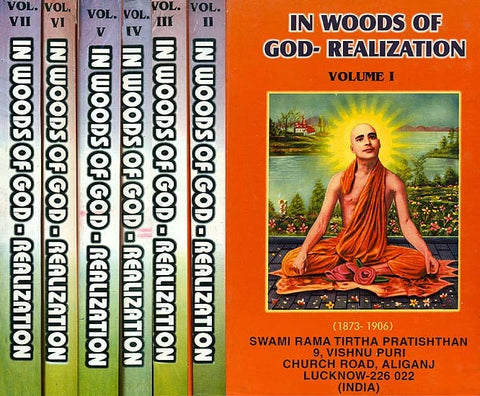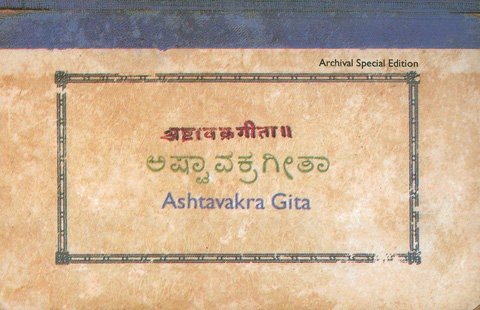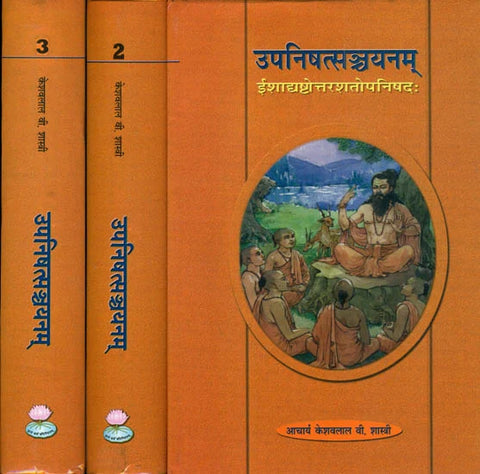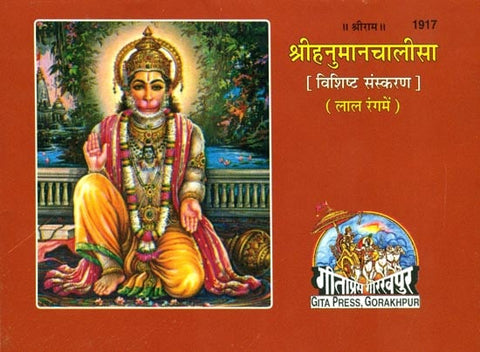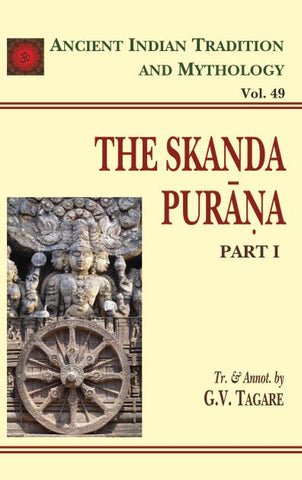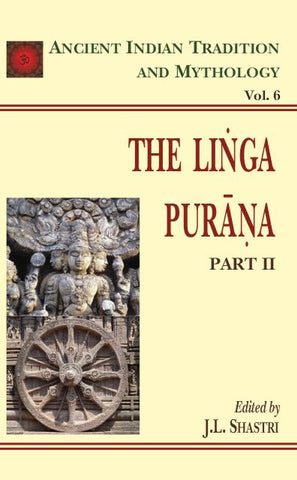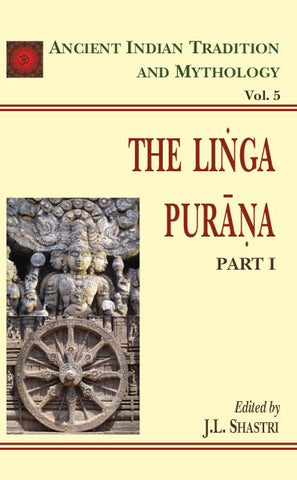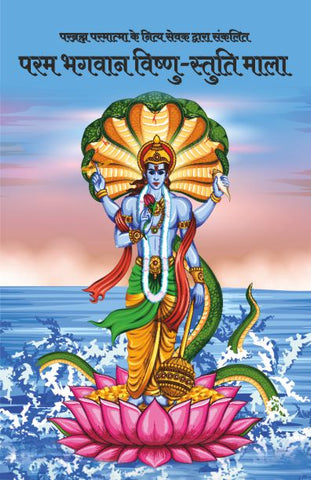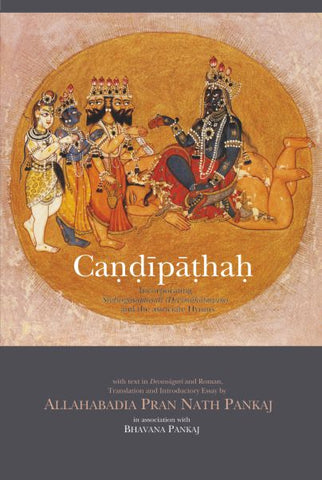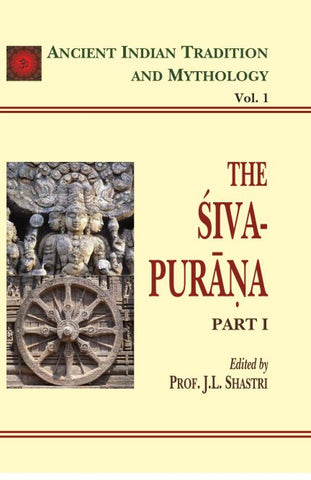Your cart is empty now.
The Upanisads: A Study of the Original Texts is intended to offer a new perspective on the study of the Upanisads. It will be surely helpful to all students of Indian philosophy, particularly those studying the texts of the Upanisads. It contains valuable information and insight not obtainable from the current literature on the subject.
There are twelve authoritative Upanisads. This study covers eight out of the twelve-Isa, Kena, Katha, Mundaka, Mandukya, Svetasvatara, Chandoogya and Brhadarabyaka. Its aim is to prove how discrimination and reliance on the original texts are the real sources of help in reading the Upanisads. The help given by the commentator is acceptable to the extent he is faithful to the original texts. Otherwise, it is not indispensable. The trustworthiness of a commentary is determined not by the large support received from scholars but solely by the measure of its fidelity to the original scripture.
N. Jayashanmugam taught Philosophy at Annamalai University and later at Sri Aurobindo International Centre of Education, Pondicherry.
Influenced by the writings of Sri Aurobindo, he began in the year 1990 a close study of the original texts of the Upanisads. In 2000 Indian Council of Philosophical Research, New Delhi, awarded him a Senior Fellowship to complete the study under the project title Upanisads: A Study in Their Light.
He is self-appointed to an important task and the task is to unfold the unique teachings of the Upanishads. He has developed his own method of study and placed the original texts in an entirely new perspective.
The style of the Upanisads is very peculiar. But still, it was quite intelligible to the great scholars of the Vedas (mahasrotriyah) about whom we hear from the Chandogya Upanisad. We live in an age far removed from the age of these great scholars. As a result, we find the texts of Upanisads to be very difficult to comprehend. Now commentators come to our help. They elucidate the texts and make them intelligible to us.
A good commentator should have three essential qualities. First, he should be well-versed in all the original texts of the Upanisads. Second, he should have the skill to logically analyse the texts and successfully bring out their true import through the analysis. Third, he should be absolutely sincere in interpreting the text. Generally speaking. The undertaken by him. Instead of elucidating the texts for the sake of making them intelligible, he preconceived notions. As a result, he gives up the primary senses of the original words and puts into them his own personal ideas. His elucidation is really unfaithful to the original texts. In such cases, he does not help us. However, we wrongly think we are helped by him to understand the original teachings of the Upanisads. There are plenty of instances to prove that an innocent reader of the Upanisads is not really helped by the commentator whose work is a right elucidation of the original texts.
In the circumstance what is needed is this: We must use the power of discrimination and reject the wrong readings of the Upanisads through the authority of the original texts. By doing so we must try to arrive at the right readings of these texts. Destruction without construction serves no useful purpose.
There are twelve authoritative Upanisads. My book covers eight out of the twelve-Isa, Kena, Katha, Mundaka, Mandukya, Svetasvatara, Chandogya and Brhadaranyaka. It is a record of my long association with the Upanisads, my sustained attempt at reaching the reading. My aim is to prove how discrimination and reliance on the original texts are the real sources of help in reading the Upanisads. The help given by the commentator is acceptable to the extent he is faithful to the original texts. Otherwise, it is not indispensable. The trustworthiness of a commentary is determined not by the large support received from scholars but solely by the measure of its fidelity to the original scripture. There should be no doubt about it.
This book is intended to offer a new perspective to the study of the Upanisads, It will be surely helpful to all students of Indian Philosophy, particularly those studying the texts of the Upanisads. It contains valuable literature on the subject.
I take this opportunity to thank the Indian Council of Philosophical Research, New Delhi, which granted me a Senior Fellowship for studying the Upanisads.
| Preface | vii | |
| Isa Upanisad | ||
| Chapter 1 | The Unique Possession | 1 |
| Chapter 2 | The Dark Worlds | 6 |
| Chapter 3 | Anti-Asceticism | 25 |
| Chapter 4 | The Law of the Lord | 39 |
| Chapter 5 | The Rule for Enjoyment | 57 |
| Chapter 6 | Atmahan | 68 |
| Kena Upanisad | ||
| Chapter 7 | The Isa and the Kena | 82 |
| Chapter 8 | The Kena and the Vedic Ideal of Fulfilment | 89 |
| Katha Upanisad | ||
| Chapter 9 | The Yoga of Birth and Dissolution | 108 |
| Mundaka Upanishad | ||
| Chapter 10 | The Isa and the Mundaka | 115 |
| Chapter 11 | The Two Vidyas | 127 |
| Chapter 12 | Veda and Vedanta-Vyakhyana | 137 |
| Chapter 13 | Works and Immortality | 151 |
| Mandukya Upanishad | ||
| Chapter 14 | The World and the Mandukya Upanisad | 164 |
| Chapter 15 | Gaudapada's Karika: Two Aspects | 172 |
| Chapter 16 | Catuspadatma-Siddhi | 180 |
| Chandogya Upanisad | ||
| Chapter 17 | The Example of Clay | 202 |
| Chapter 18 | Scripture, Knowledge, and Delusion | 216 |
| Brhadaranyaka Upanisad | ||
| Chapter 19 | Therefore That Become the World | 228 |
| Chapter 20 | Death and Immortality | 241 |
| Chapter 21 | Atma Vidya and Madhu Vidya: Two Expositions | 254 |
| General Topics | ||
| Chapter 22 | Textual Evidence of the Theory of Maya | 293 |
| Chapter 23 | The Mortal and the Immortal | 302 |
| Chapter 24 | Two Forms of Synthesis of Yoga | 312 |
| Chapter 25 | The Upanisads: A Survey of Their Teachings | 337 |
| Chapter 26 | Yoga: A Means to Fulfilment | 359 |
| Allied Topics | ||
| Chapter 27 | Two Types of Devotes | 370 |
| Chapter 28 | The Sastra and the Brahmasutra | 380 |
| Chapter 29 | Philosophy of the Upanisads: A Study by Sri Aurobindo | 390 |
| Conclusion | ||
| Chapter 30 | An Answer to the Critics | 403 |
| Appendix | 407 | |
| Bibliography | 408 | |
| Index | 410 |
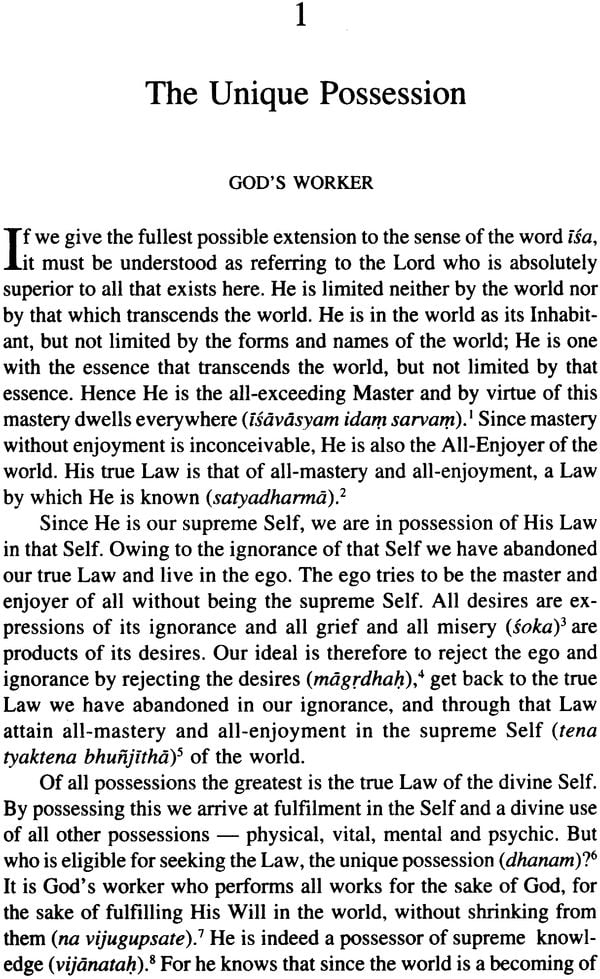
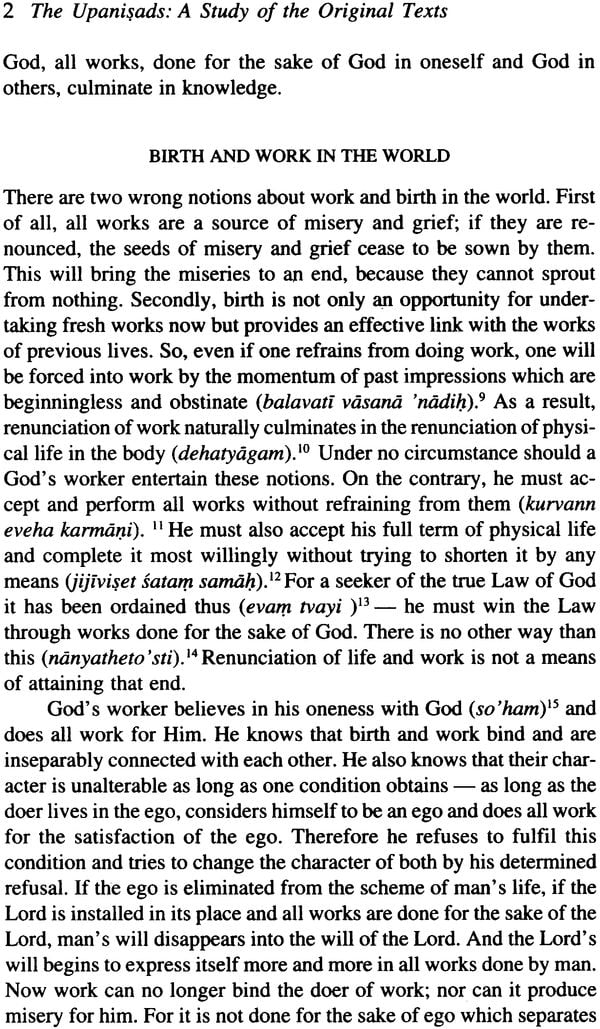
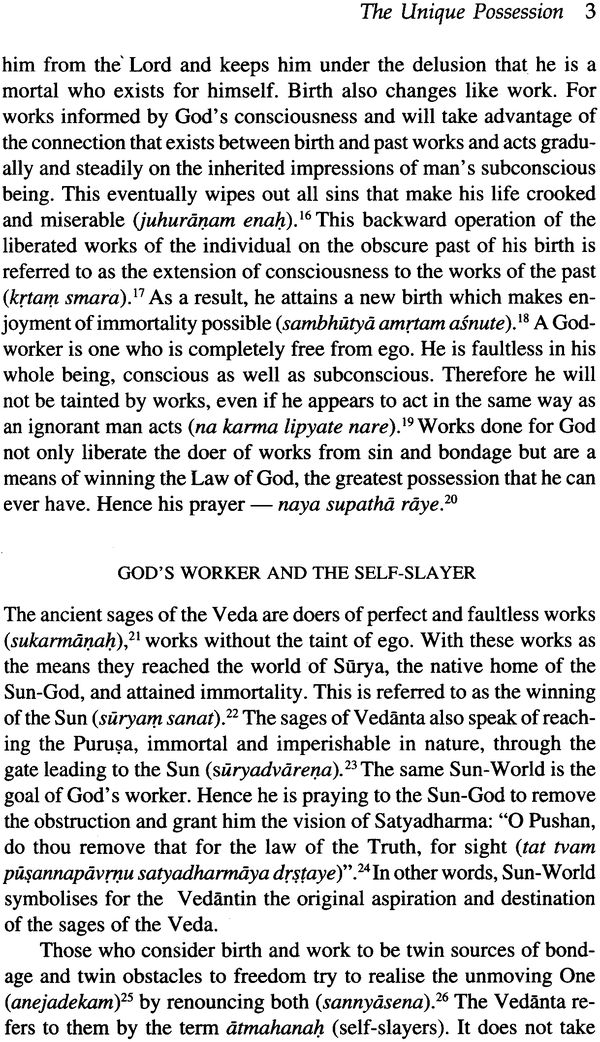
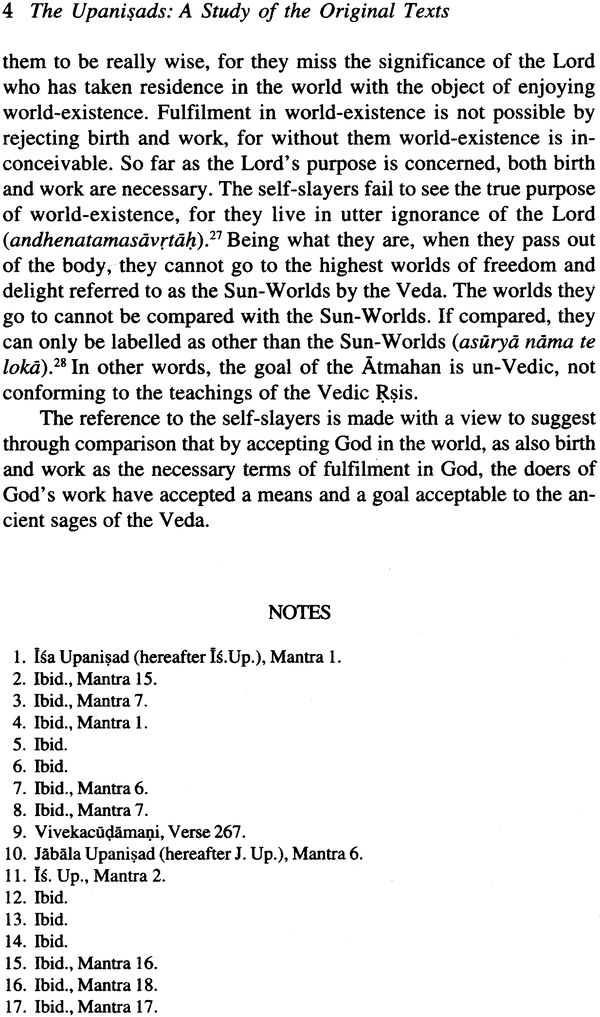
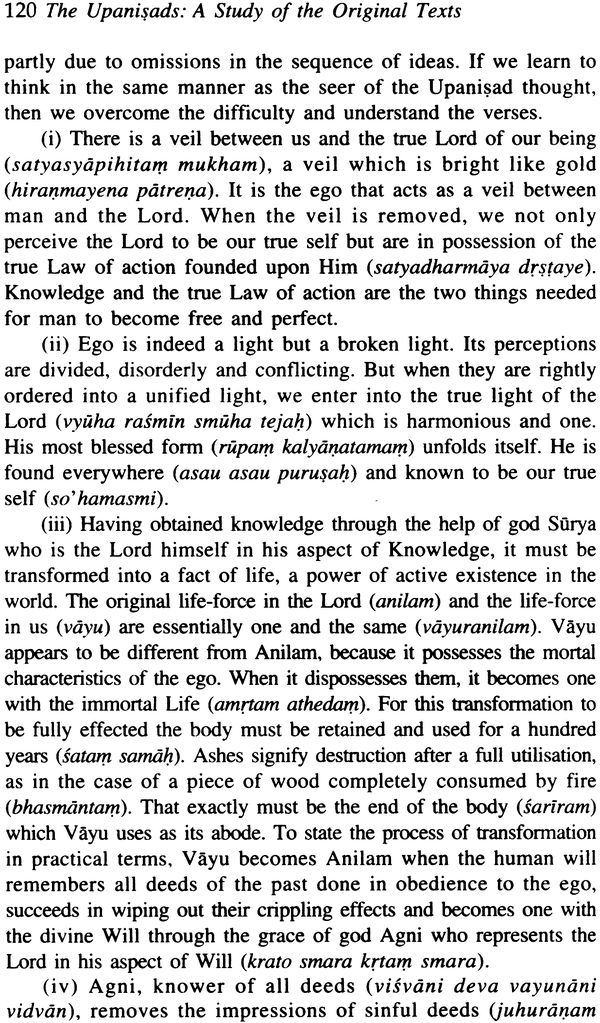
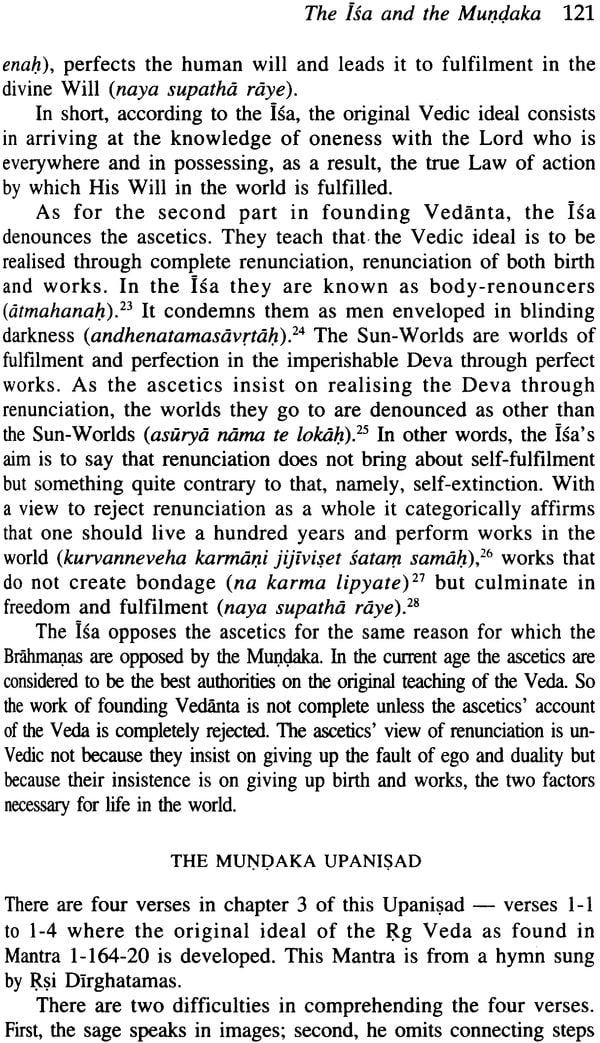
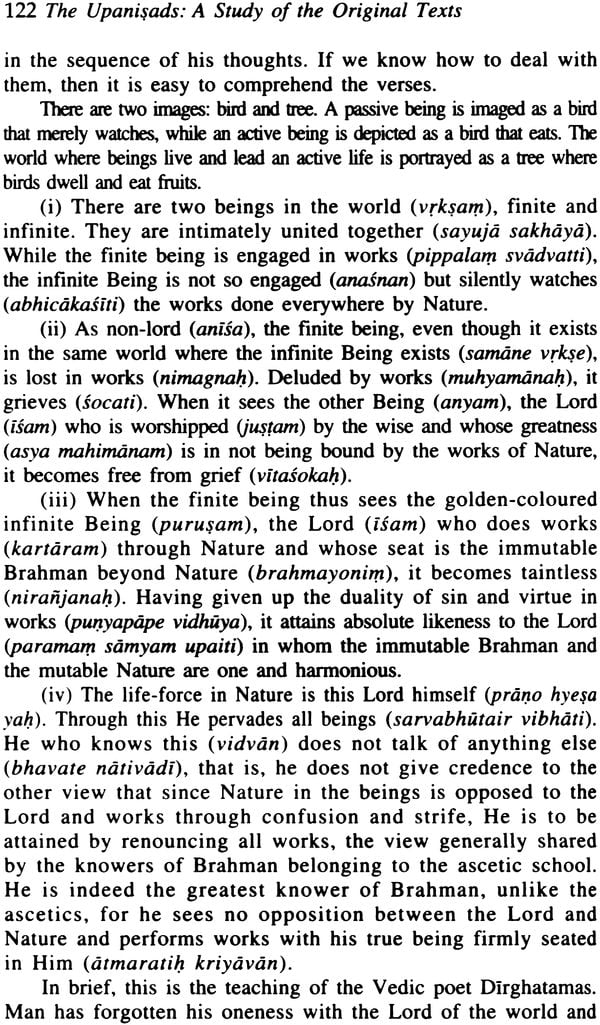
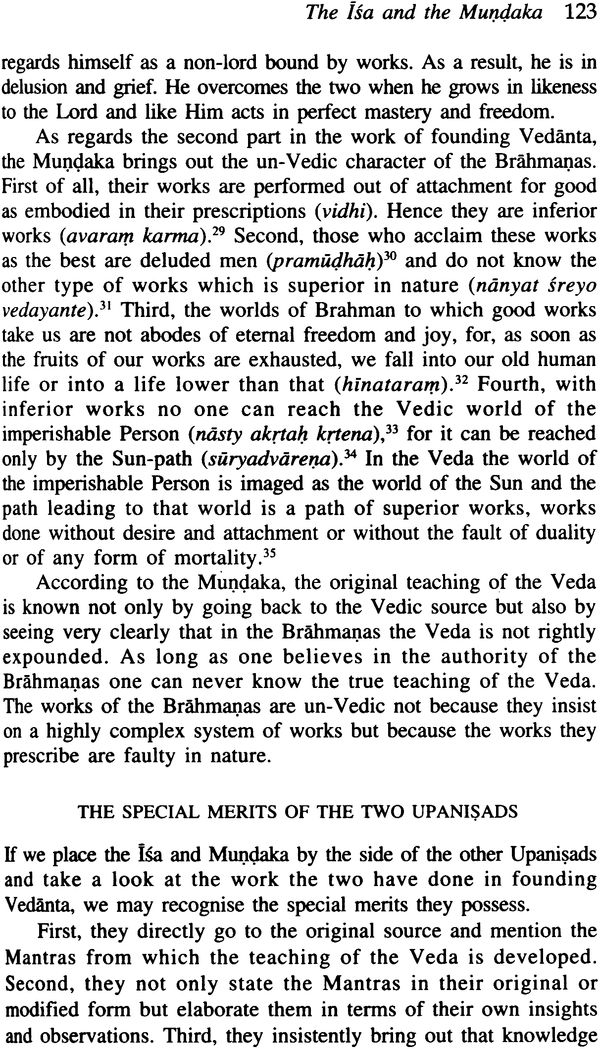
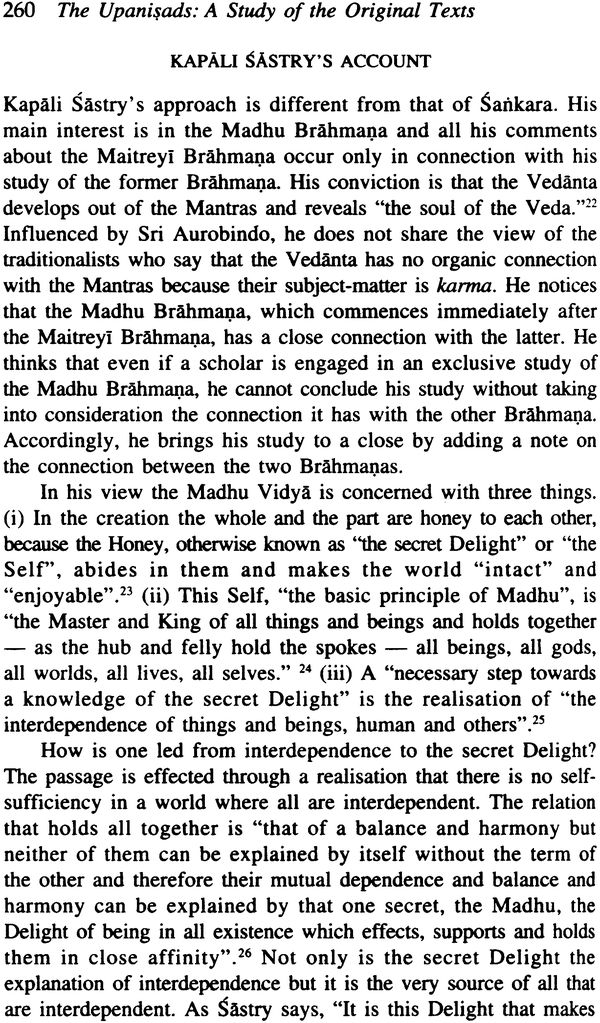
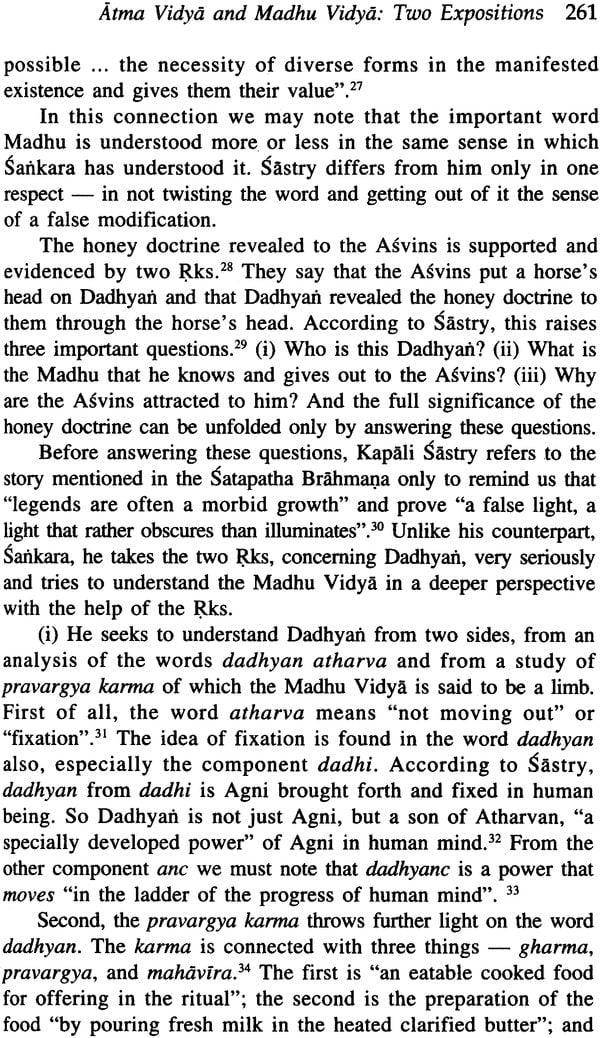
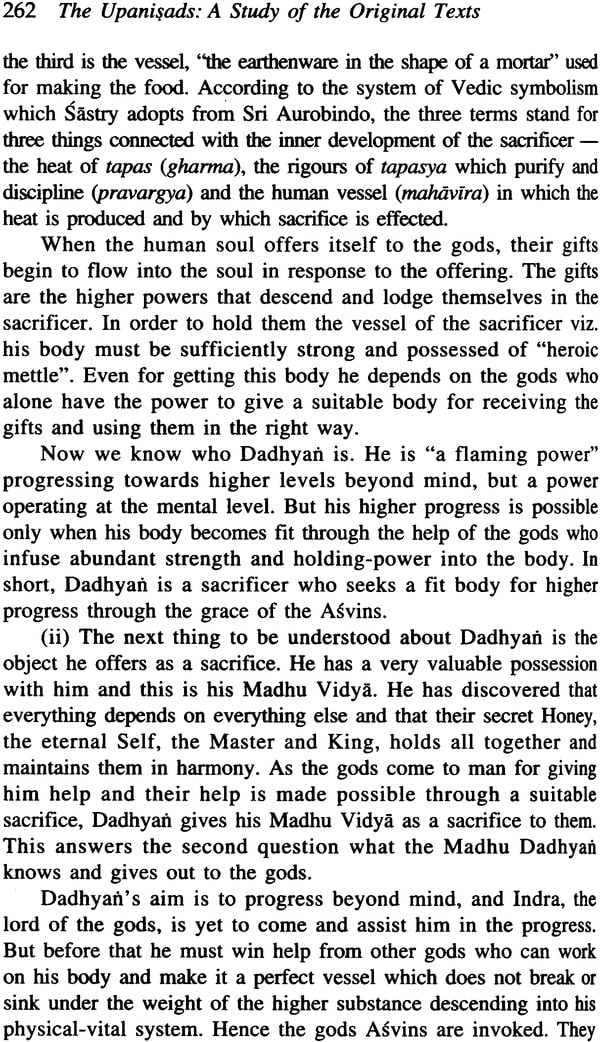
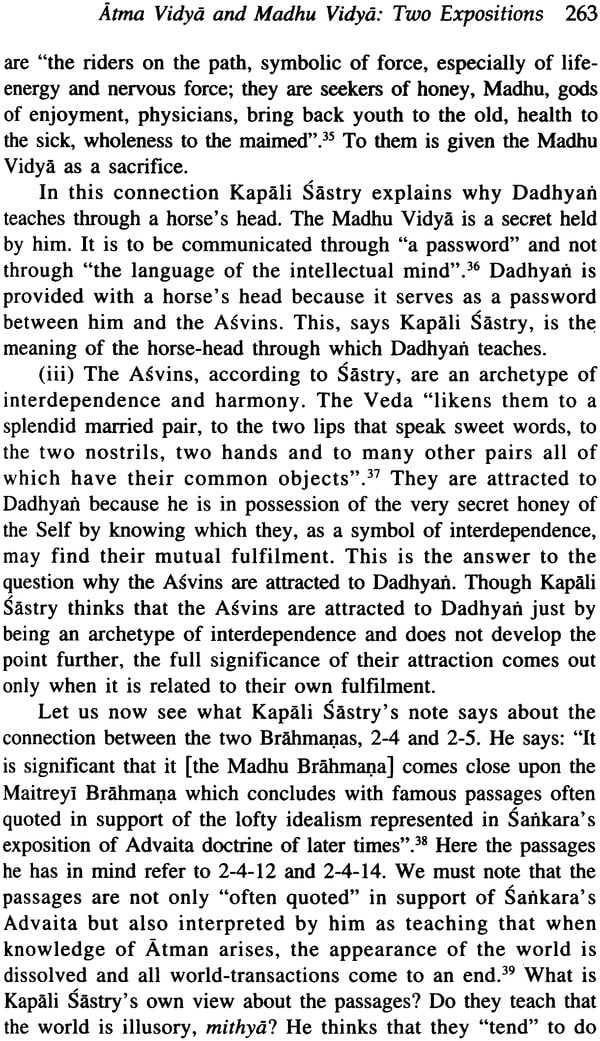
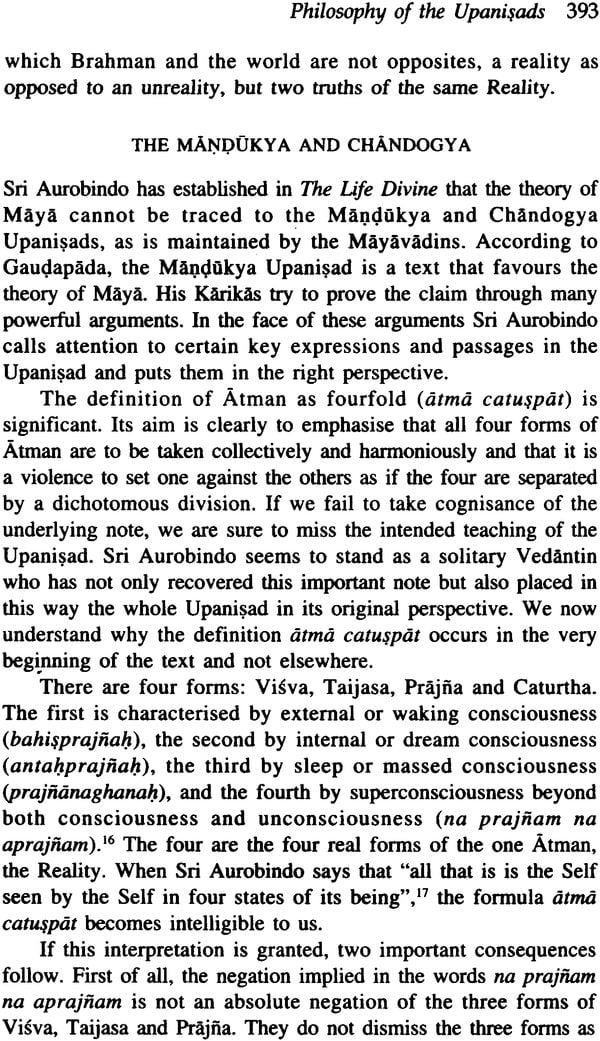
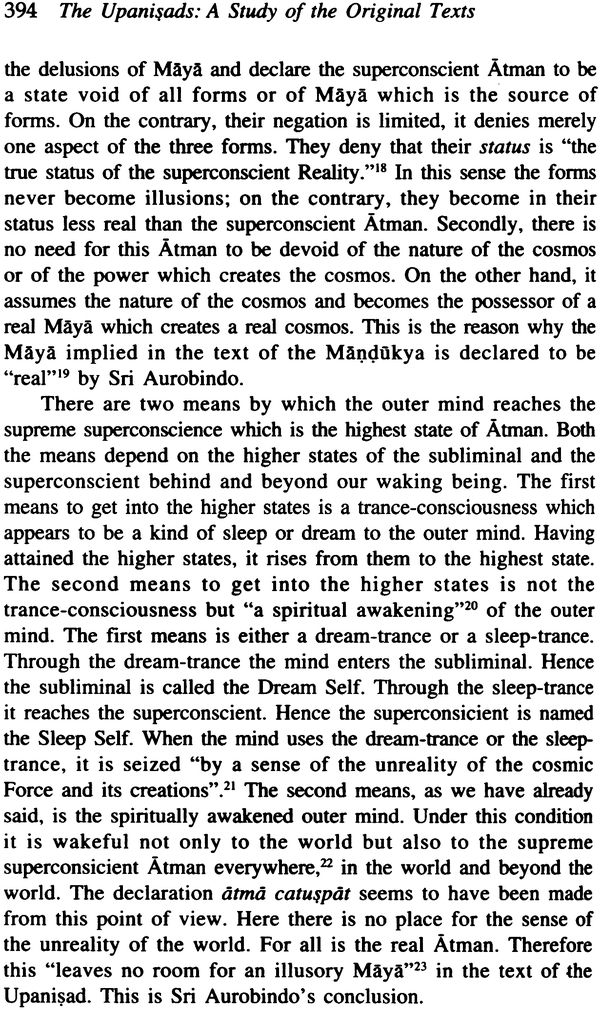
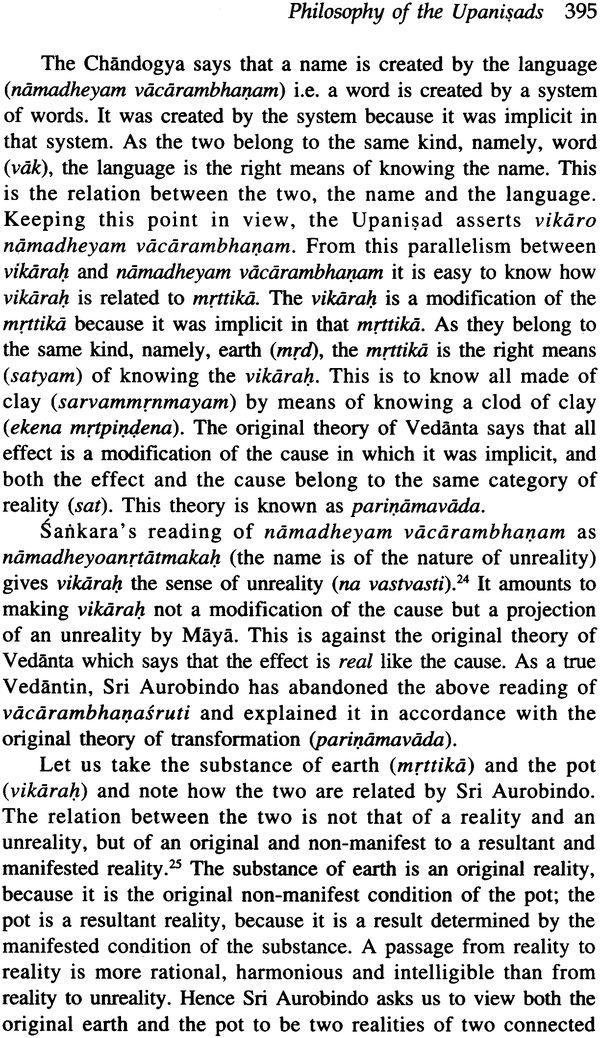
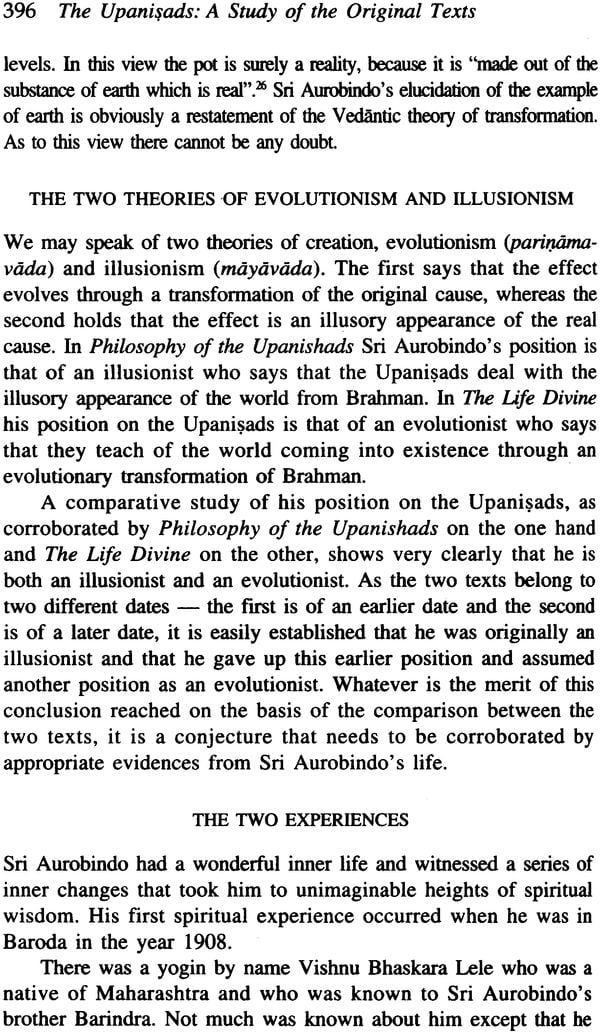
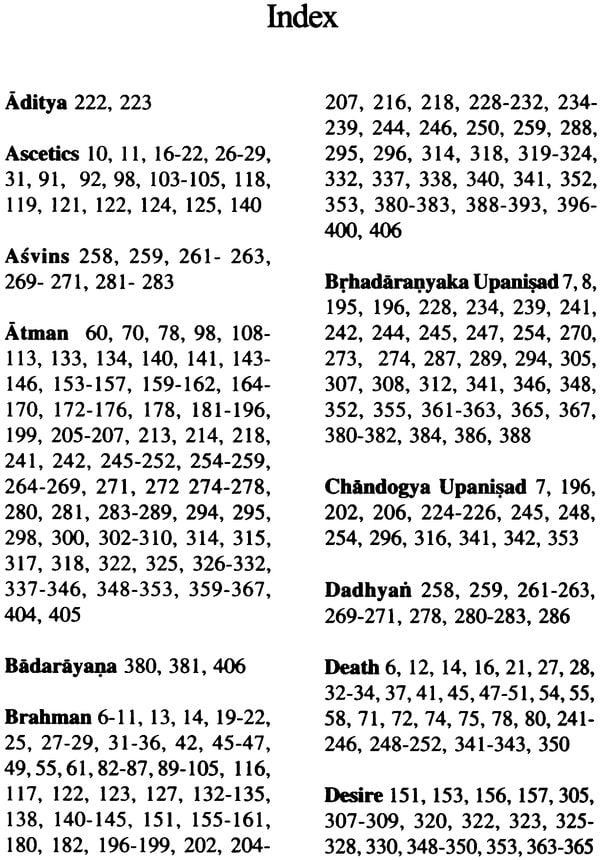
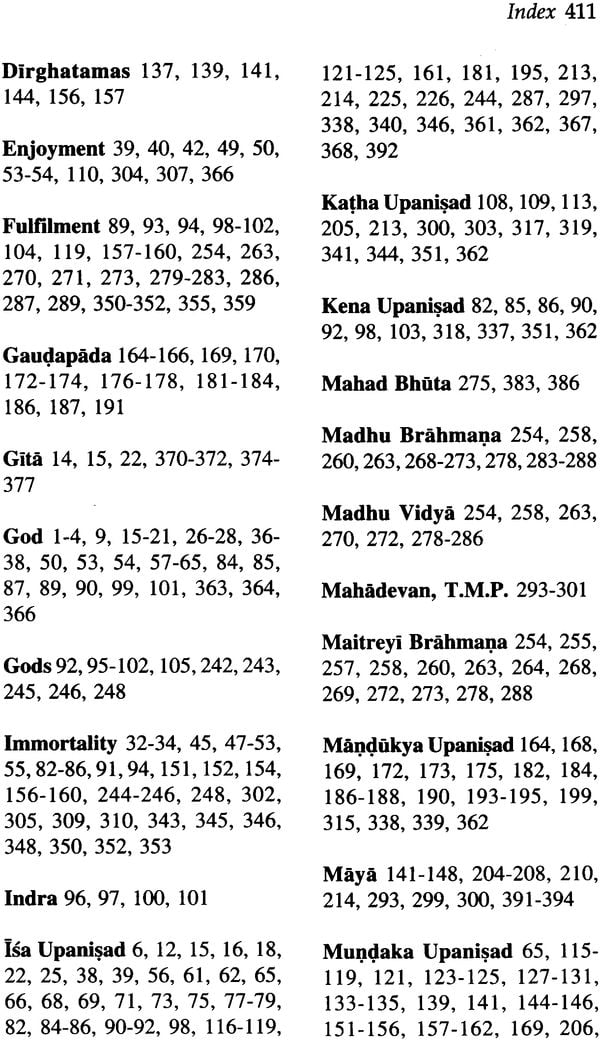
Delivery and Shipping Policy
- INTERNATIONAL SHIPPING
- Rs.1000-1100/kg
- ESTD. Delivery Time: 2-3 weeks (depending on location)
- Bubble Wrapped with Extra Padding
- NATIONAL SHIPPING
- NCR: Rs. 30/half kg
- Standard: Rs. 80/half kg
- Express shipments also available on Request
- ESTD. Delivery Time: Ranging from 1-4 days up to 7 business days (Depending on your choice of Delivery)
- TRACKING
- All orders; national or international, will be provided with a Tracking ID to check the status of their respective orders
- Depending on the Shipping Service, Tracking ID may be used on their respective tracking portals
Frequently Asked Questions (FAQs)
Domestic Shipping: 3-4 Days (after shipping)
International Shipping: 1-2 weeks (based on your location)
You will receive an email once your order has been shipped or you can email us if you didn't receive tracking details (info@mlbd.co.in)
Every book that we sell is the latest edition except all the rare books
Yes, we do provide free shipping, only on domestic orders (within India) above Rs.1500


